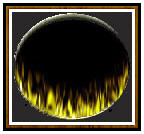CONTROL INCOGNITO
FROM A MEDICAL DICTIONARY
We found an excellent description of what goes on in the lungs of smokers, in one medical dictionary. Here, again, is information that is normally not told to the public. The entry said that -
"Deep, wheezing breaths occur when the walls of the bronchi are covered with mucus. This is caused by foods such as dairy products, sugar...and saturated fats...a coat of mucus may even develop around the air sacs, choking off the blood supply. Mucus in the bronchi can be loosened and discharged by coughing, but once it surrounds the sacs, it becomes more firmly lodged, and may remain there for years. THEN, if air pollutants and cigarette smoke enter the lungs, their more solid components are attracted to and remain IN this sticky environment. In severe cases, these deposits can trigger the development of lung cancer. However, air pollution or cigarette smoke are not the causes of this disease. The real problem lies in the condition of the alveoli and the blood and capillaries which surround them." (The preceding quote was slightly edited by me, for clarity.)
From The Book of Macrobiotics: the Universal Way of Health and Happiness, written by Michio Kushi, we have another opinion. He states, that among people of modern society: "...who consume quantities of saturate fat, and other fatty acids as well as mucus-forming food..." (such as cheese and other dairy products, meat, and sugar, products made with white flour, together with) "sugar-treated food and stimulant beverages" (such as donuts, cake, pudding, Coca-Cola, Pepsi-Cola, and other soda pop, that smoking does contribute to the development of cancer. However, among people who do NOT eat those foods, but who "consume more unrefined grains, vegetables, beans, and seaweed the development of lung cancer from smoking" is not statistically proven. He goes on to say, that for people "who do NOT consume an excessive volume of animal food, including meat, eggs, and dairy food...refined sugar, honey, tropical and semi-tropical fruits, fruit juices, wine and other alcoholic beverages...smoking does NOT contribute to produce lung cancer." He DOES advise, however, that it is not wise to indulge in heavy smoking. I might only add, that for people who LIVE in the tropics, or in a tropical climate, the ingestion of tropical fruits and fruit juices - RAW - is natural for them, and does NOT contribute to a condition which encourages lung cancer in smokers.
The consensus of opinion, is that cancer cells are able to form in the lungs, due to poor blood quality, coupled with the accumulation of mucus in the alveoli, which are the air sacs in the lungs. These tend to get a thick, gooey film around them, which is caused by overeating foods that create excessive mucus - the film attracts nicotine, asbestos, and other things which can contribute to lung cancer. If you eliminate the mucus, the threat of lung cancer is gone. Fenugreek, fennel, comfrey, garlic, sweet potatoes, lemons, limes, and grapefruit all help to clear out the lungs, eliminate the mucus, and contribute to mucus-less alveoli, and healthy lungs.
TOBACCO
TERRORS
PAGE 4 OF 5
4
SECOND-HAND SMOKE AND CHEMICALS IN CIGARETTES
Today, the big bugaboo, is second-hand smoke, and how "dangerous" it is. The public is getting hyped on that one! Well, it would be quite interesting to see from whence the smoke originates. For instance, if the testing being done, uses Camel, Doral, Marlboro, Salem, Winston, or any other the other most popular cigarette brands, I can understand why there is all the concern. All of the major brands have an incredible number of chemicals added to the tobacco. But, home-grown tobacco, or 100% pure natural tobacco or cigars or cigarettes made from it - DO NOT. There is evidence that our tobacco fields have been fertilized with radioactive waste, from uranium mines. Great... In addition, several chemicals have been found in tobacco smoke, that do not naturally occur in the tobacco. A list of them, a PARTIAL list, follows:
ACETALDEHYDE - a highly toxic, flammable liquid which irritates mucous membranes and the eyes and accelerates the action of the heart. Prolonged exposure causes blood pressure to rise and decreases the number of white and red blood cells.
ACETONITRILE - a toxic compound found in coal tar and molasses residue and used in the production of plastics, rubber, acrylic fiber, perfumery, and insecticides.
ACROLEIN - a toxic, colorless liquid with irritating vapors.
AMMONIA - a gaseous alkaline compound of nitrogen and hydrogen used as a coolant in refrigerating and air-conditioning equipment, in explosives, artificial fertilizers, and disinfectants, and as a cleaner.
CARBON MONOXIDE - a highly toxic, flammable gas used in the manufacture of various chemical products. Inhalation of it interferes with the exchange of oxygen from the lungs to the tissues that need it.
FORMALDEHYDE - a pungent gas used primarily as a disinfectant and preservative. It is extremely irritating to the mucous membranes.
FORMIC ACID - a pungent liquid acid used in processing textiles and leather. Exposure to the acid irritates the mucous membranes and causes blistering. The word "formic" comes from the Latin word "formica", which means ANT. It was first obtained from the distillation of ants, in 1670. Anyone who lives in an area that has "fire ants" knows all about us. I do. It is made commercially from carbon monoxide and sodium hydroxide. The textile industry uses it for dying wool-fast colors, which causes quite a bit of the sting and itch that we all associate with wool.
Continued on Page 5...
It bears repeating:
"KNOWLEDGE REJECTED IS
A FEARSOME MASTER."
subtly, secretly, silently, successfully...
This page was last updated: October 29, 2022
The opinions expressed here are purely mine. Any references to real people are purely --- INTENTIONAL.
"Wise Men STILL Seek Him"

